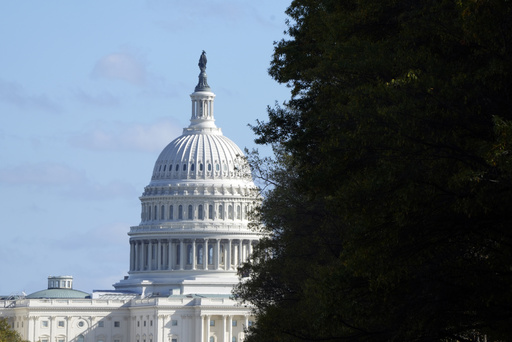
WASHINGTON — As Congress reconvenes, the landscape in Washington has shifted significantly with President-elect Donald Trump’s right-leaning agenda starting to come into focus. Republican lawmakers are enthusiastic about taking full control of the government, while Democrats are left reflecting on their missteps during the recent election.
Despite the fact that many election results are still pending, House and Senate leadership are forging ahead with preparations for a second Trump term, which includes plans for extensive deportations, deregulation of industries, and significant cuts to federal programs. Trump is already challenging traditional governance practices during this interim, suggesting that the Senate bypass its advisory role in approving his Cabinet picks, and he is rapidly assembling his administration with the support of lawmakers who are willing to adapt to his unorthodox approaches.
“Trump will deliver on his promises of deportations, drilling, and border security—it’ll take a collective effort,” stated Rep. Ralph Norman, R-S.C., a member of the House Freedom Caucus.
Before diving into legislative matters, leadership elections will take place this week for key Republican positions within Congress. The top Republican figures are closely aligned with Trump, working to strengthen their loyalty to him for their political survival. House Speaker Mike Johnson is poised to maintain a narrow majority in the House, with several races still undecided, and plans to initiate his leadership team’s agenda during a celebration on the Capitol steps.
Republicans have regained control of the Senate and are eager to expedite confirmations of Trump’s nominees. GOP Sen. John Thune of South Dakota, who is in the race for the Senate leadership position, emphasized the importance of gearing up for these legislative practices and ensuring that the president-elect’s appointees are confirmed swiftly.
The current political atmosphere signals a dramatic shift in governance, as Trump returns to the White House with a potentially sympathetic GOP majority in Congress, which is inclined to support his policymaking much more than they did eight years prior.
“This will be an extremely challenging period,” remarked Rep. Pramila Jayapal, D-Wash., chair of the Congressional Progressive Caucus, who highlighted the severe immigration policies Trump vowed to implement. She contended that progressives would serve as a necessary counterbalance to the Trump administration, reminiscent of how they resisted his attempts to repeal the Affordable Care Act during his first term.
Jayapal also expressed concerns that Trump will face fewer bureaucratic barriers this time around. “Our caucus is ready to re-engage in the struggle,” she asserted, standing with newly elected progressive representatives, whom she called the “bright lights” of the new Congress.
As lawmakers prepare for the upcoming legislative session, they will be joined by a wave of new faces in the House and Senate as they attend orientation and participate in private leadership elections scheduled for Wednesday. However, tensions have arisen as some Republican senators object to newly elected Dave McCormick of Pennsylvania being excluded from orientation by Senate Democratic Majority Leader Chuck Schumer due to outstanding ballots in his race. Schumer’s office has noted that it is customary to await the completion of ballot counting.
The race for Senate leadership to succeed outgoing Mitch McConnell has become a platform for demonstrating loyalty to Trump. The president-elect’s supporters—including well-known figures like Elon Musk—are advocating for Sen. Rick Scott of Florida, despite his unpopularity compared to other candidates such as Thune and Sen. John Cornyn of Texas. The results of the private vote on Wednesday remain uncertain.
In the House, some conservative members are suggesting that leadership elections should be postponed until final election results are available. Democrats are set to hold their leadership elections in both chambers later. Johnson is keen to keep his position as speaker, stating he is prepared to work collaboratively with his colleagues to meet Trump’s objectives. Nevertheless, he may face opposition within the party, as he only requires a simple majority for his nomination while needing a 218-vote majority for official election in January.
A smaller vote count this week could indicate the influence of the Freedom Caucus and their ability to negotiate concessions from Johnson, similar to the challenges faced by former Speaker Kevin McCarthy. While Johnson is optimistic that the new year will bring about “the most consequential” presidency and Congress in history, he faces difficulties this year leading a party struggling to unify, often finding himself collaborating with Democratic Leader Hakeem Jeffries.
A looming concern is the upcoming December 20 deadline to fund the federal government and avoid a potential shutdown, with conservatives urging Johnson to remain firm against demands for spending cuts. Additionally, Congress will review measures to replenish the Disaster Relief Fund to assist those affected by the recent hurricanes.
With President Joe Biden set to exit and Democrats relinquishing control of the Senate, there is mounting pressure to confirm outstanding judicial nominees and advance any remaining legislation that could be passed prior to Trump’s inauguration.
